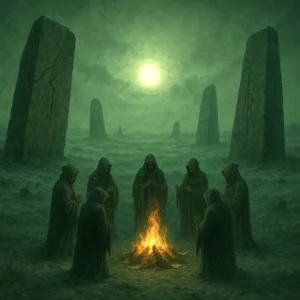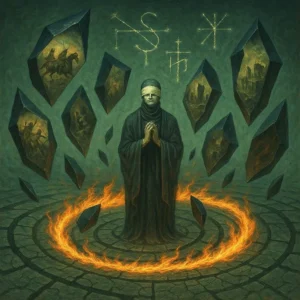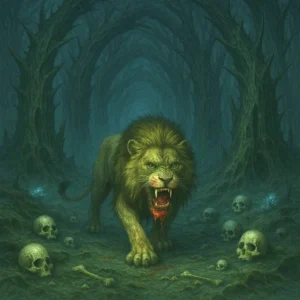It goes a little bit funny when you realize how death metal grew to be impactful, to the point of adapting some of its jargons and making it a common slang expression we use today. You were probably told that you “slayed” it when you did something impressive. Its significance suggests that “slay” simply means to kill performance by “being out there” and doing your best.
It does ring a bell when you’ve come across the words death metal and slay, reminding you of one of the most successful bands of all time, Slayer. Asserting its way as one of the “Big 4 of Thrash Metal”, Slayer branded its identity through incorporating satanic imagery into their lyrical themes and titles about demons and devils. And as death metal continues to evolve over time and how more bands would arise, the shock value and other heavy negative themes such as violence, torture, paganism, and anti-religion prevailed as the generic motif.
In the 1980s, heavy metal music paved its way towards a subgenre that was yet to be revolutionized. Musicians characterize songs as heavy metals as powerful and loud, but bands over time experimented with fast drumming, growled vocals, high-pitch shrieks, and tremolo picking, birthing to an extreme form of music which was later on called death metal. The conception of such music category, however, wasn’t simply drawn from its dark themes, but rather on the emergence of competitive bands across the globe.
The Chronicle
An 11-year old from California, US pioneered the death metal in 1983 by writing a song with the hopes of reforming the classic heavy music. Jeff Becerra, the lead singer and former bassist of Possessed band, composed Burning in Hell at an early age and soon decided to form a band. Thrilled with a flaming desire to reach the music industry’s pinnacle, the group was on its quest to be the heaviest band globally with the sounding identity of being intense, faster, and denser. In other words, they combined the top three metals of thrash, black and speed, to form the boldest of them all – the death metal. Following their self-acclaimed decision as to the pioneers, Becerra wrote a song Death Metal as an official statement.
Growth and Evolution
First Wave (1980s)
The year 1985 officially marked the debut of death metal out in the public when Possessed released their first-ever album Seven Churches (1985). The band’s aim to gain attention through being bold and drastic was an instant success by integrating religion, maddened guitar shreds, heavy bass lines, and demonic growls. Another famous band around this era was Death, who introduced their album Scream Bloody Gore (1987) with a branding identity of taking savagery to a whole new level. Severed Survival (1989) by Autopsy was the same, is known as the thickest, putrid form of death metal imaginable through its waddling riffs and aggressive rupture of sound. The promising award of distinguishability put all the bands in a rival competition during the first wave of death metal’s evolution.
Second Wave (1990s)
It wasn’t until the next decade where death metal was seen to have a significant evolution. Many musicians consider the 90s as a booming era for the genre where bands started to take gruesome lyrical wordplays to the highest level. At last, bloodshed imagery was just a trivial trend, making it the most taxing sound in the history of metal. Asphynx’s Last One on Earth (1992) was among the top 15 best death metal album of 1990. It wasn’t simply about the ugly growls and howled vocals, but the calculated stomping rhythms which give the listeners an eerie, frustrating feeling. A creative theme of hostility and societal wipeout, this song was known to evoke a sense of discomfort and exasperation.
On a related note, did anyone miss one of the most controversial songs of Body Count? Entitled “Cop Killer”, the song was released at the same time Los Angeles court enforced a brutal police arrest towards Rodney King. President George W. Bush at that time even complained about the album release, while Ice-T (band founder) was haunted by the FBI’s National Threat List. Quoting a part of the band’s lyrics which made it controversial:
“Cop killer, fuck police brutality!
Cop killer, I know your momma’s grieving, (fuck her!)”
Third Wave (2000s)
Death metal really seems to be evolving through the eras, finally assembling its natural powerful tone with a melodic characteristic. In fact, bands such as Nile, Origin, Gojira, and Decapited are among the artists to incorporate music technicality – an exciting venture for people to be introduced to death metal music who at the same time craves for a pleasant series of notes. The mainstream brutality is no longer just the vibe that makes you do the headbang due to endless styles a band decides to explore.










